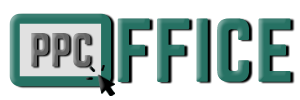
4 Key Takeaways from the Enhancing Oncology Model
As our understanding of cancer and its treatment evolves, the need for a new approach in oncology care becomes increasingly apparent. The enhancing oncology model offers a comprehensive strategy to address the unique challenges faced by cancer patients and their healthcare providers. In this article, we will discuss the top four takeaways from the enhancing oncology model and explore how as a healthcare provider, you can apply them to your practice.
-
Patient-Centered Approach
Central to the enhancing oncology model is its focus on patient-centered care. This approach prioritizes the needs, preferences, and values of patients throughout their cancer treatment journey. In practice, this means fostering open communication between patients and healthcare providers, involving patients in decision-making, and offering personalized care plans based on individual needs.
-
Streamlined Care Coordination
A crucial aspect of the enhancing oncology model is improved care coordination. Cancer care often involves multiple healthcare providers and complex treatment plans. By streamlining the process and utilizing care coordinators, patients can more easily navigate their treatment journey. Care coordinators act as a single point of contact for patients, helping to ensure timely appointments and facilitating communication between the various members of a patient’s care team.
-
Emphasis on Patient Education and Support
Another key takeaway from the enhancing oncology model is the focus on equipping patients with the information and support they need to make informed decisions about their care. Patient education resources and understanding the new models for oncology and their benefits to patients are essential for effective patient outcomes. Additionally, providing emotional and psychological support can help reduce distress, improve quality of life, and increase overall satisfaction.
-
Integration of Palliative Care
The enhancing oncology model recognizes the importance of integrating palliative care into cancer treatment plans. Palliative care is focused on providing relief from the symptoms and stress of serious illness, with the goal of improving the quality of life for both patients and their families. By incorporating palliative care into the oncology model, healthcare providers can address patients’ physical, emotional, spiritual, and social needs, ultimately enhancing their overall well-being and quality of life.
To Sum Up
The enhancing oncology model offers a holistic approach to cancer care that prioritizes patients’ needs and incorporates key principles. By implementing this innovative model, healthcare providers can help ensure that patients receive the highest quality of care during their cancer treatment journey. With these four takeaways in mind, it’s evident that this model is a promising step toward improving patient outcomes and satisfaction in the oncology field.



